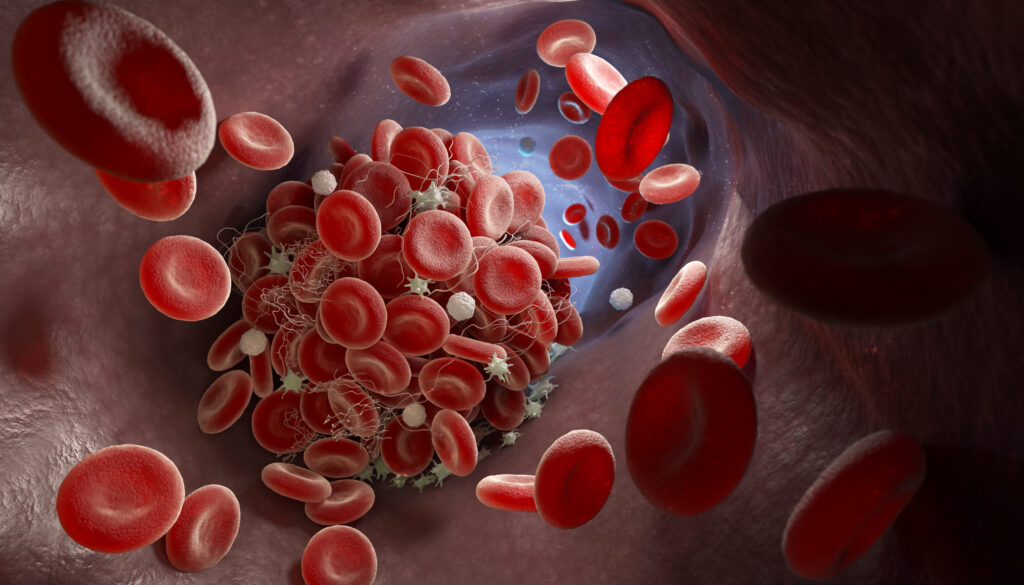Pfizer has kickstarted the new year with its first-ever gene therapy approval, awarded by Health Canada to the company’s Beqvez (fidanacogene elaparvovec) for the treatment of hemophilia B.
The adeno-associated viral (AAV) vector-based gene therapy received approval in Canada for the treatment of adults aged 18 years or older with moderately-severe to severe hemophilia B who are negative for neutralizing antibodies to variant AAV serotype Rh74, Pfizer Canada revealed in its announcement of the approval.
Beqvez is also being reviewed by the US Food and Drug Administration (FDA) with a decision anticipated by mid-2024.
Pfizer said that according to the World Federation of Hemophilia, more than 38,000 people worldwide were living with hemophilia B in 2021. In Canada, there are over 700 individuals affected by hemophilia B.
Hemophilia B, also known as congenital Factor IX (FIX) deficiency or Christmas disease, is a rare genetic bleeding disorder caused by a deficiency or defect in the FIX clotting protein. This deficiency leads to prolonged, recurrent spontaneous and/or post-traumatic bleeding, particularly into the joints and muscles, which can be life-threatening, especially in individuals with severe hemophilia.
It’s a less common variant of hemophilia and is typically inherited in an X-linked recessive pattern, thereby affecting predominantly males. Treatment involves replacing the missing FIX clotting protein, traditionally through regular infusions. There is a significant focus on developing gene therapies as longer-term solutions for the disease.
Pfizer licensed Beqvez from Spark Therapeutics nine years ago.
XTALKS WEBINAR: Cryopreservation Best Practices for Cell & Gene Therapy Source Material
Live and On-Demand: Monday, January 22, 2024, at 11am EST (4pm GMT/UK)
Register for this free webinar to learn about cryopreservation, a vital step in the manufacturing of today’s cell and gene therapies.
Beqvez works by delivering the high-activity human FIX gene to allow patients to produce FIX endogenously in the body rather than through regular intravenous infusions.
Beqvez’s Health Canada approval was based on results from the Phase III BENEGENE-2 study, which evaluated the therapy’s efficacy and safety in male adults (18 to 65 years of age) with moderately-severe to severe hemophilia B (defined as FIX circulating activity of two percent or less).
The study involved 45 participants and compared the annualized bleeding rates (ABR) between those receiving the gene therapy and standard FIX prophylaxis. The gene therapy was shown to reduce treatment burden, offering persistent production of FIX after a single infusion.
Gene therapy approvals for rare blood disorders like sickle cell disease and beta thalassemia have been gaining traction lately, with two significant approvals in sickle cell disease recently — CRISPR Therapeutics and Vertex Pharmaceuticals’ CRISPR gene editing drug Casgevy (exa-cel) and bluebird bio’s viral vector therapy Lyfgenia (lovo-cel).
Related: Lyfgenia and Casgevy Become First FDA-Approved Gene Therapies for Sickle Cell Disease
While the Health Canada approval is a significant inaugural win, Pfizer is looking to discontinue development of viral vector-based gene therapies. This could be because safety delays around its hemophilia A and Duchenne muscular dystrophy gene therapies prevented the company from being the first to enter the market. Having an early presence in the market is particularly beneficial for gene therapies, which are often designed as single-dose treatments.
In response to not being able to clock in first, Pfizer has redirected its focus towards innovative areas where it can make a substantial impact with unique medicines and vaccines, according to a company spokesperson. The strategic shift has led to a focus on other genetic medicine tools, putting a gene therapy facility up for sale and transferring some of its technological assets and programs to Alexion, a division of AstraZeneca focused on rare diseases, in a deal potentially worth $1 billion.
Overall, primarily due to dwindling sales of its COVID-19 vaccine Comirnaty and antiviral Paxlovid (nirmatrelvir/ritonavir), Pfizer announced in December that it will increase its planned cost cuts in 2024 by $500 million, bringing the total cuts to $4 billion. A whopping 70 percent of the cuts will be made on the research and development side, while the rest will be directed at selling, informational and administrative functions. The company decided to increase cuts after its projected earnings for 2024 fell short of Wall Street estimates. Shares of the company dropped to their lowest levels in more than ten years after Pfizer shared the forecast report in December.
Pfizer expects that its $43 billion acquisition of Seagen will help keep it afloat by adding $3 billion to its top line next year.
Beqvez is set to rival CSL Behring’s Hemgenix (etranacogene dezaparvovecfor), which was the first gene therapy approved for hemophilia B. Priced at $3.5 million, the treatment was licensed by Australia’s CSL from UniQure, a leader in gene therapy, and received approval from the FDA in November 2022 and from Health Canada in October 2023. Its sales revenue has yet to be detailed in CSL’s latest financial disclosures. The list price of Beqvez has not been disclosed yet.












Join or login to leave a comment
JOIN LOGIN